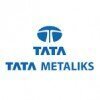Filter interviews by
Bmm Ispat Senior Instrument Engineer Interview Questions and Answers
Bmm Ispat Senior Instrument Engineer Interview Experiences
1 interview found
I applied via Company Website and was interviewed before Apr 2021. There were 2 interview rounds.

(1 Question)
- Q1. Technical question they are asked
Interview Preparation Tips
Top trending discussions






Interview questions from similar companies

Instrument & Control Engineer Interview Questions & Answers
MSP Steel & Powerposted on 8 Oct 2017
I was interviewed in Sep 2017.
Interview Questionnaire
16 Questions
- Q1. Tell me about yourself
- Ans.
I am a dedicated Instrument & Control Engineer with a passion for problem-solving and optimizing processes.
Experienced in designing, implementing, and maintaining control systems
Skilled in troubleshooting and resolving technical issues
Strong knowledge of PLC programming and SCADA systems
Proficient in conducting risk assessments and ensuring compliance with safety regulations
- Q2. What is power plant, how many types we can generate the power
- Ans.
A power plant is a facility that generates electrical power. There are various types of power plants.
Power plants convert various forms of energy into electrical power.
Types of power plants include coal-fired, natural gas-fired, nuclear, hydroelectric, wind, solar, and geothermal.
Coal-fired power plants burn coal to produce steam, which drives a turbine to generate electricity.
Natural gas-fired power plants burn natura...
- Q3. What is the roll of instrumentation in power plant
- Ans.
Instrumentation plays a crucial role in power plants by monitoring and controlling various processes to ensure safe and efficient operation.
Instrumentation is used to measure and monitor parameters such as temperature, pressure, flow rate, and level in power plant systems.
It helps in controlling and regulating the operation of equipment and processes, ensuring they operate within safe and optimal ranges.
Instrumentation...
- Q4. Where interlocks taken & why
- Ans.
Interlocks are taken to ensure safety and prevent equipment damage.
Interlocks are safety measures that prevent certain actions from occurring if specific conditions are not met.
They are used in various industries, including manufacturing, power plants, and oil refineries.
Interlocks can be mechanical, electrical, or software-based.
They are implemented to protect personnel, equipment, and the environment.
Examples of inte...
- Q5. Types of control valves & working principles
- Ans.
Control valves are used to regulate the flow, pressure, temperature, or level of a fluid in a process system.
There are several types of control valves, including globe valves, butterfly valves, ball valves, and plug valves.
The working principle of control valves involves the use of a valve body, actuator, and positioner.
Globe valves have a linear motion disk that moves perpendicular to the flow, controlling the flow ra...
- Q6. How works vibration probes, why need vibration probe
- Ans.
Vibration probes are used to measure and monitor vibrations in machinery and equipment.
Vibration probes work by converting mechanical vibrations into electrical signals.
They typically consist of a piezoelectric crystal or an accelerometer.
The probe is attached to the equipment being monitored and detects vibrations.
The electrical signals are then processed and analyzed to determine the severity and frequency of the vib...
- Q7. What is axial displacement in turbine
- Ans.
Axial displacement in a turbine refers to the movement of the rotor along its axis.
Axial displacement is a measure of the axial movement of the rotor in a turbine.
It is typically measured in millimeters or inches.
Axial displacement can occur due to thermal expansion, mechanical wear, or other factors.
Excessive axial displacement can lead to issues such as rubbing, vibration, or reduced efficiency.
Monitoring and control...
- Q8. Tell me about turbine supervisory panel
- Ans.
A turbine supervisory panel is a control system used to monitor and control the operation of a turbine.
It provides real-time data on the turbine's performance and condition.
It allows operators to remotely start, stop, and adjust the turbine's operation.
It includes various sensors and instruments to measure parameters such as temperature, pressure, and vibration.
It can generate alarms and alerts in case of abnormal cond...
- Q9. Process of ash handling system
- Ans.
The ash handling system is responsible for collecting and disposing of ash generated from combustion processes.
Ash handling systems are commonly used in power plants and industrial boilers.
The process involves the collection, transportation, and disposal of ash.
Different types of ash handling systems include dry ash handling, wet ash handling, and ash slurry disposal.
Dry ash handling systems typically use pneumatic con...
- Q10. What is rankine cycle
- Ans.
Rankine cycle is a thermodynamic cycle used in power plants to convert heat into mechanical work.
Rankine cycle is a theoretical cycle that represents the operation of a steam power plant.
It consists of four processes: heating the working fluid, expanding it in a turbine, condensing it back to liquid, and compressing it in a pump.
The cycle uses water or steam as the working fluid.
It is widely used in power generation, i...
- Q11. Types of thermocouples ,RTD & working principles
- Ans.
Thermocouples and RTDs are types of temperature sensors used in Instrument & Control Engineering.
Thermocouples are made of two different metals and generate a voltage proportional to the temperature difference between the two junctions.
RTDs (Resistance Temperature Detectors) are made of pure metals and their resistance changes with temperature.
Thermocouples are commonly used in industrial applications due to their wide...
- Q12. What is your job role
- Ans.
As an Instrument & Control Engineer, my job role involves designing, developing, installing, managing, and maintaining control systems and instruments.
Designing control systems for industrial processes
Developing new instruments and technologies
Installing and configuring control systems
Managing and maintaining control systems and instruments
Troubleshooting and resolving issues with control systems
Collaborating with
- Q13. Tell me about your self
- Ans.
I am a dedicated Instrument & Control Engineer with a passion for problem-solving and optimizing processes.
Experienced in designing, implementing, and maintaining control systems
Skilled in troubleshooting and resolving technical issues
Strong knowledge of PLC programming and SCADA systems
Excellent communication and teamwork skills
Bachelor's degree in Instrumentation & Control Engineering from XYZ University
- Q14. Why you want to change your job
- Ans.
Seeking new challenges and opportunities for growth in a different environment.
Desire for new challenges and learning experiences
Opportunity for career advancement
Seeking a better work-life balance
Interest in working with new technologies or industries
- Q15. Why I select you
- Ans.
I have a strong background in Instrument & Control Engineering with hands-on experience in various projects.
I have a Bachelor's degree in Instrument & Control Engineering from a reputable university.
I have completed internships at leading companies where I gained practical experience in designing and implementing control systems.
I have a proven track record of successfully completing projects on time and within...
- Q16. What is your strength & weakness
- Ans.
Strength: Strong problem-solving skills. Weakness: Difficulty delegating tasks.
Strength: Able to quickly identify and solve complex issues.
Weakness: Struggle to trust others to complete tasks to my standards.
Strength: Excellent at troubleshooting and finding innovative solutions.
Weakness: Tend to take on too much responsibility and struggle to ask for help when needed.
Interview Preparation Tips
Experience: resume shortlisted by HR persons
Skills: Technical Skill And Speaking Skill, Confidence
Bmm Ispat Interview FAQs
Tell us how to improve this page.
Bmm Ispat Interviews By Designations
- Bmm Ispat Assistant Manager Interview Questions
- Bmm Ispat Engineer Interview Questions
- Bmm Ispat CNC Machine Operator Interview Questions
- Bmm Ispat Diploma Electrical Engineer Interview Questions
- Bmm Ispat Engineer and Production Manager Interview Questions
- Bmm Ispat Fitter Interview Questions
- Bmm Ispat Graduate Engineer Trainee (Get) Interview Questions
- Bmm Ispat Junior Officer Stores Interview Questions
- Show more
Interview Questions for Popular Designations
- Instrumentation Technician Interview Questions
- Instrument Engineer Interview Questions
- Control & Instrumentation Engineer Interview Questions
- Instrumentation Supervisor Interview Questions
- Senior Instrumentation Technician Interview Questions
- Manager Instrumentation Interview Questions
- Instrument & Control Engineer Interview Questions
- Electrical & Instrumentation Engineer Interview Questions
- Show more
Interview Questions from Similar Companies
|
Senior Engineer
96
salaries
| ₹3.2 L/yr - ₹10 L/yr |
|
Engineer
86
salaries
| ₹2.4 L/yr - ₹6 L/yr |
|
Assistant Manager
73
salaries
| ₹4.5 L/yr - ₹11.6 L/yr |
|
Deputy Manager
51
salaries
| ₹6.1 L/yr - ₹13.5 L/yr |
|
Junior Engineer
41
salaries
| ₹1.4 L/yr - ₹4.2 L/yr |

Tata Steel

JSW Steel

Steel Authority Of India

ArcelorMittal Nippon Steel
- Home >
- Interviews >
- Bmm Ispat Interview Questions >
- Bmm Ispat Senior Instrument Engineer Interview Questions













